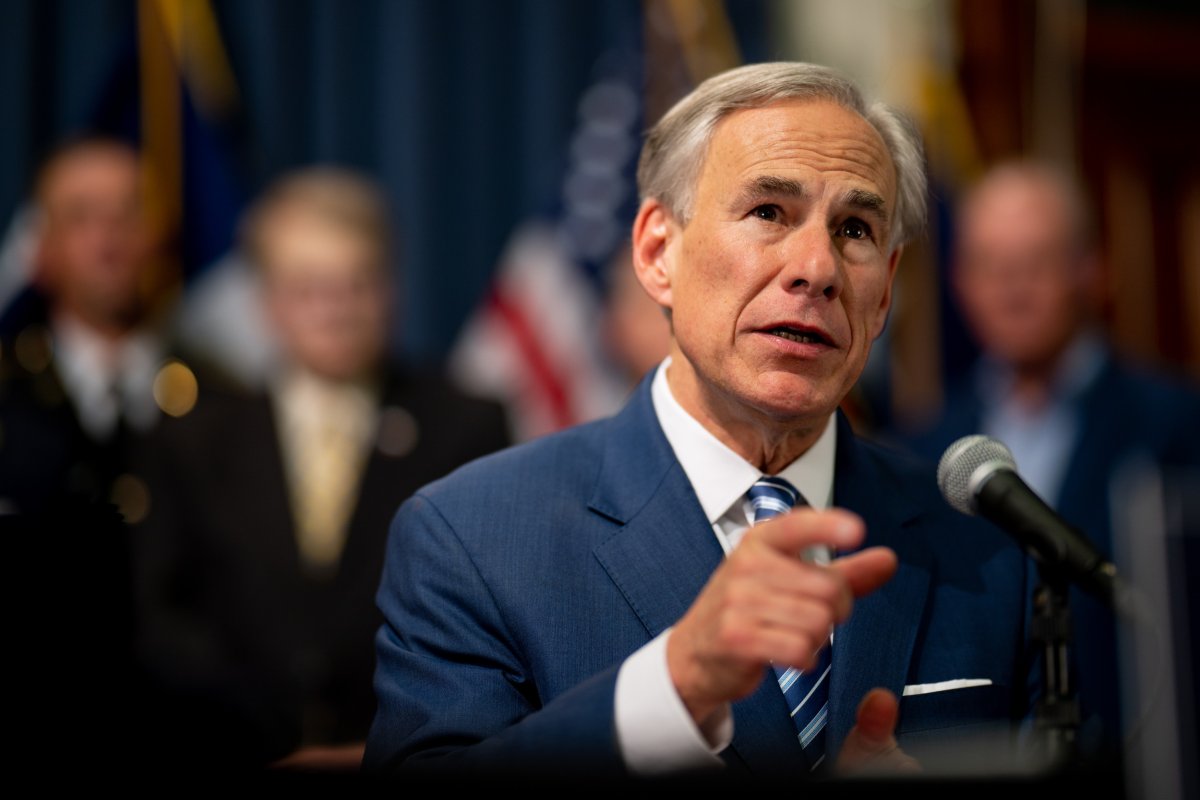The Austin American-Statesman blasted Republican Texas Gov. Greg Abbott for "sabotaging" the future of the state by signing an anti-DEI (Diversity, Equity, and Inclusion) law, which has led to dozens of layoffs at a public college campus across the state.
This week, the University of Texas at Austin laid off at least 60 employees in an effort to comply with Senate Bill 17, which eliminates DEI offices and initiatives in higher education. The bill was signed by Abbott last June and took effect in January.
Reacting to the college layoffs, the Austin American-Statesman's editorial board wrote in an opinion piece on Thursday: "That's at least 60 workers laid off not over questions of competence or relevance—but for their effort to facilitate academic success for every student.
"That's more than 52,,000 [sic] students getting the message that their state has marshalled both law and political pressure to remove school-funded DEI offices and initiatives, or staff that perform DEI functions, that allow students to find support, learn about differences, and feel welcome in their academic home."
The Texas newspaper then blamed Abbott for what it called sabotaging the state's future economy.
"And that's Texas – driven by Republican fervor to hunt down and crush what they've deemed 'woke' tendencies in education – gnawing deeply into the reputation of its magnificent higher education system," the opinion piece said. "It's the state alienating already-admitted UT students who might be its next energy game-changers or medical giants. It's Gov. Greg Abbott heedlessly sabotaging a future that depends on thinkers from a broad range of backgrounds, ethnicities – and yes, life experiences – for economic success."
Newsweek reached out to Abbott's office via email for comment.

DEI practices in both higher education and the workplace have grown in popularity in recent years, with institutions and companies promoting the value of creating a welcoming atmosphere where people from diverse backgrounds can excel.
Progressives tend to back DEI programs as a way to combat institutionalized racism that they say is ever-present in society. Conservatives, on the other hand, have fought against such initiatives as they worry that DEI aims to push a narrative against some classes of people (whether that be based on race, gender, socioeconomic status, etc.) and create an unfair advantage for others.
The new Texas law also prevents colleges and universities from giving preference to an employee or employee applicant based on their race, sex, color, ethnicity, or national origin, and restricts these institutions from requiring students who enroll there to participate in DEI training.
Under federal law, it is illegal to hire or not hire someone based on their race, color, religion, sex, national origin, age, disability or genetic information. It is also illegal for an employer to make decisions about job assignments and promotions based on these descriptors.
On Tuesday, the University of Texas President Jay Hartzell announced that the college will be closing its Division of Campus and Community Engagement and redistributing the remaining programs.
"This means that we will continue to operate many programs with rich histories spanning decades, such as disability services, University Interscholastic League, the UT charter schools, and volunteer and community programs," Hartzell wrote.
The university president said that funding used to support DEI will now go to supporting teaching and research, adding, "Staff members whose positions are being eliminated will have the opportunity to apply and be considered for existing open positions at the University, and resources will be made available to support them."
"I recognize that strong feelings have surrounded SB 17 from the beginning and will shape many Longhorns' perceptions of these measures," Hartzell continued. "It is important that we respect the perspectives and experiences of our fellow Longhorns as the changes we are announcing today take effect. It is also important that this continues to be a welcoming, supportive community for all."
When reached by Newsweek for comment, the University of Texas at Austin referred to Hartzell's comments on Tuesday and also a letter the president sent to campus in December 2023.
"It is important to remember that even while we are complying with the new law and policy, many things will not change — including our commitment to attracting, supporting and retaining exceptional talent across diverse backgrounds and perspectives, celebrating the collective strength of our community, and fostering a sense of belonging for all Longhorns," Hartzell wrote in the December 2023 letter.
Update 4/4/24, 11:48 a.m. ET: This article has been updated with additional information.
Update 4/4/24, 2:21 p.m. ET: This article has been updated for clarity.
Uncommon Knowledge
Newsweek is committed to challenging conventional wisdom and finding connections in the search for common ground.
Newsweek is committed to challenging conventional wisdom and finding connections in the search for common ground.
About the writer
Rachel Dobkin is a Newsweek reporter based in New York. Her focus is reporting on politics. Rachel joined Newsweek in ... Read more
To read how Newsweek uses AI as a newsroom tool, Click here.








